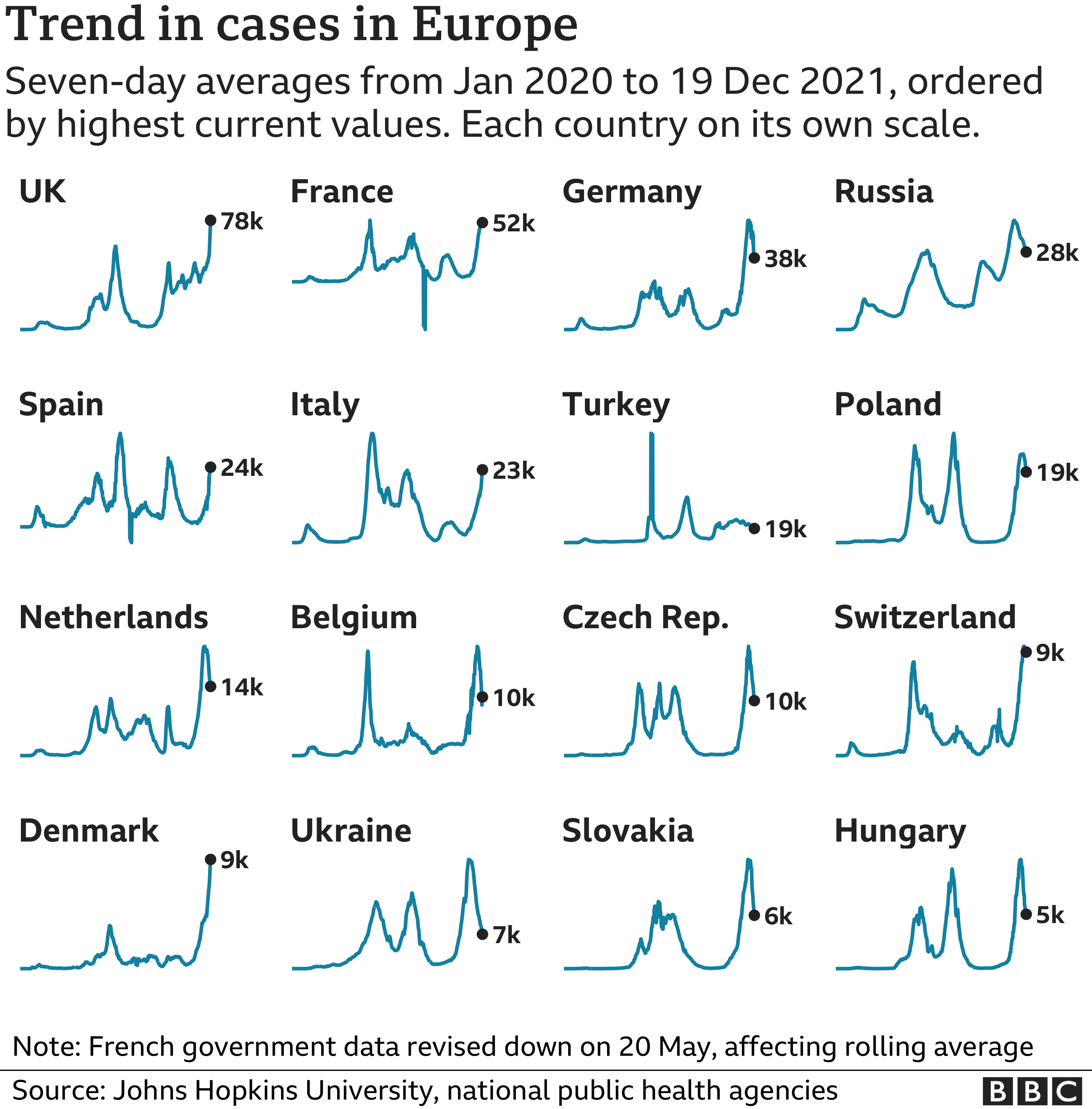European leaders are reinstating coronavirus restrictions as the new Omicron variant continues to spread through the continent.
Germany and Portugal are among nations announcing post-Christmas curbs and greater social distancing measures.
Omicron is already the dominant strain in many European countries.
The surge will push health systems towards the brink of collapse, the World Health Organization’s top official in the continent has warned.
Hans Kluge said “another storm” was coming and governments should brace for significant increases in cases.
Germany announced that from 28 December limits would return that restrict private gatherings to 10 people and nightclubs would close. Football matches from that date will also be played behind closed doors.
“Coronavirus doesn’t take a Christmas break,” Germany’s Chancellor Olaf Scholz said on Tuesday.
“We cannot – and must not – close our eyes to this next wave, which is beginning to loom over us,” he added.
Meanwhile Portugal ordered bars and nightclubs to shut from 26 December, and made working from home obligatory from that date until 9 January. Outdoor gatherings will be limited to 10 people.
Bars and restaurants in Finland will have to close at 22:00 on 24 December, as the Nordic nation sees infections at a record level. For three weeks from 28 December, restaurants will have to close at 18:00 with limited seating. Travellers coming from the EU’s border-free Schengen zone will have to show a negative Covid test.
In the UK, Health Secretary Sajid Javid has announced that people infected with Covid in England will be able to end quarantine after seven days instead of 10 if they test negative on days six and seven.
Prime Minister Boris Johnson earlier ruled out any new restrictions for England before Christmas, but Scotland, Wales and Northern Ireland have all announced curbs on social mixing.
In Sweden, bars, cafes and restaurants will only be able to serve seated guests from Wednesday, and people are being asked to work from home if possible.
Health Minister Lena Hallengren said she expected Omicron cases to rise and warned the “the burden on the health care system is increasing”.
The Netherlands has already brought in tighter restrictions, announcing a strict lockdown on Monday, but BBC Europe correspondent Nick Beake says other European leaders want to delay tighter controls until after the festive period if possible.
Europe has already seen more than 89 million cases and 1.5 million Covid-related deaths, according to the latest EU figures.

Omicron was first identified in southern Africa last month but has now spread around the globe. Data from around the world suggests Omicron may be more infectious, but there is no evidence yet that it causes more serious illness.
It has been detected in at least 38 of the 53 countries in the WHO’s European region – which includes Russia and Turkey – and is dominant in several, the organisation says.
“We can see another storm coming. Within weeks, Omicron will dominate in more countries of the region, pushing already stretched health systems further to the brink,” said Dr Kluge, quoted by Reuters.
“The sheer volume of new Covid-19 infections could lead to more hospitalisations and widespread disruption to health systems and other critical services.
“Governments and authorities need to prepare our response systems for a significant surge.”


